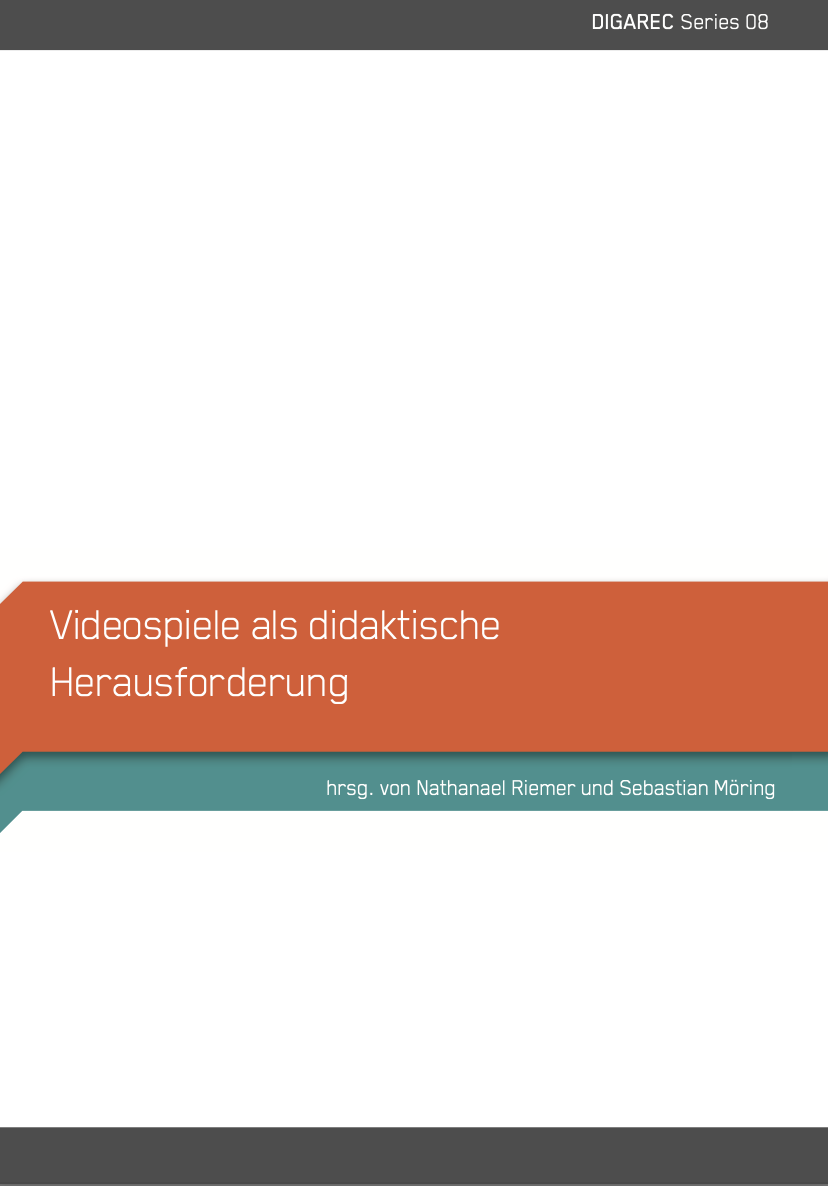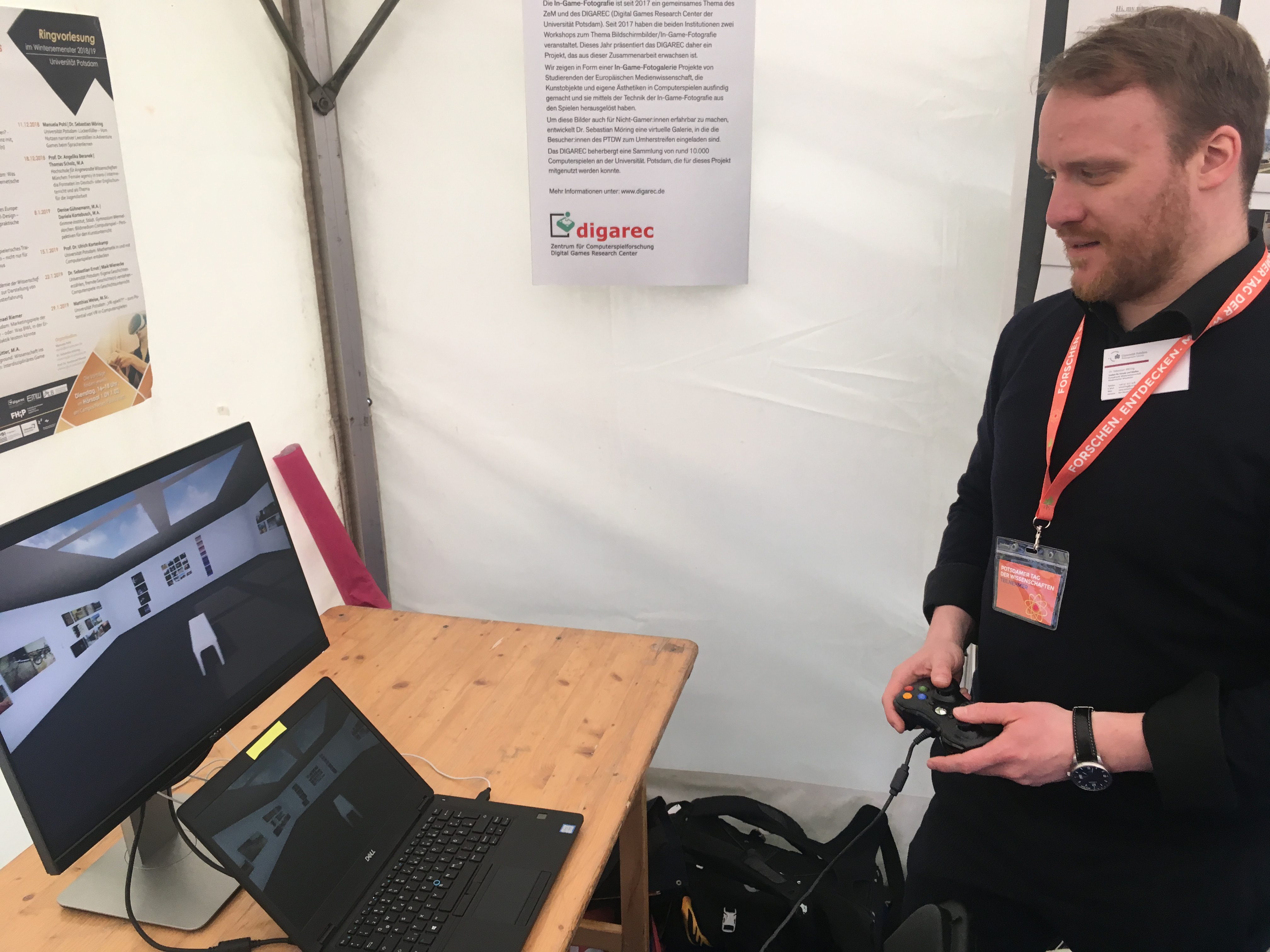All Play and No Work? Collaboration with the City University of Hong Kong
[lang_en]
DIGARECs Dr. Sebastian Möring announces his collaboration as Co-Investigator with The City University of Hong Kong concerning All Play and No Work? The Ideas and Realties of Gamification. The project joins in with the ongoing research of Gamification in the Digital Research Center and will be funded until the end 2019.
The project will be realized with:
Dr. Olli Tapio Leino from the City University of Hong Kong (Principal-Investigator):
http://www.scm.cityu.edu.hk/profile/OTLEINO
and
Dr. Espen Aarseth from the IT University of Copenhagen, Center for Computer Games Research (Co-Investigator):
https://scholar.google.com/citations?hl=en&user=xxdwlx8AAAAJ
A description of the project can be read here:
Traditionally play and games have been understood as frivolous, creative, free, separate from everyday life, and standing in contrast to productive activities like work and education.
Many are familiar with the thrilling excitement of taking risks on a whim, knowing that it’s “only a game”.
Recently, a movement often referred to as ’gamification’, or, ’ludification’, i.e. the use of game elements in non-game contexts, has emerged, promising that the ‘magic’ of game-playing could be added into productive activities to make them more enjoyable, efficient, and productive.
Conference talks on gamification have garnered millions of views on Youtube, and, sparked an ever-growing body of professional literature, instructing how to radically transform productive activities. While design practitioners and engineers have embraced gamification and published a number of interdisciplinary anthologies, there are no humanities-based scholarly monographs theorizing gamification and its implications.
Vocabulary for a critical study of gamification is lacking, and many questions distinguishing between ideas and realities of gamification have not received the attention they warrant. Is it without problems to harness play, with all the frivolity it entails, to serve the concerns of production and efficiency? Would it not undermine the very nature of play as an ’oasis of happiness’? Is blending of play and non-play theoretically possible? If not, what actually happens when an activity is ’gamified’? Does gamification make actual use of established ‘game mechanics’? Does gamification have something to teach us about technological play and games?
Theorizing gamification seems to involve addressing the liminality between play and non-play, and so touches upon questions regarding the role of play in human endeavors.
We propose a project resulting in a theoretically and empirically grounded critical review of gamification and in a methodological approach that can be repeated by others. Our expertise and track record in computer game studies, existential philosophy, and play theory seems very well suited for answering the above questions.
Work is structured into four phases, where subsequent phases validate the preceding ones: theoretical model-building based on synthesis of existing insights, cataloguing examples of gamification into a typology, case studies of relevant examples, and reflection.
Considering gamification as ‘test case’, we will also shed light on other contemporary forms of technological play such as “free-to-play games”, and, on established work/play hybrids, such as “serious” and “educational games”, gambling, and professional (e-)sports. Our findings will also help practitioners and policymakers to explore what can be realistically expected from gamification’s transformative capabilities.
[/lang_en]
[lang_de]
Dr. Sebastian Möring vom DIGAREC gibt seine Zusammenarbeit als Co-Investigator mit der City University of Hong Kong bekannt. Das Projekt All Play and no Work? The Ideas and Realties of Gamification befasst sich mit dem Thema der Gamification, deren Umsetzungen und möglichen Kritiken.
Das Projekt schließt sich der laufenden Forschung über Gamification im Digital Games Research Center an und wird bis Ende 2019 finanziert.
An der Umsetzung des Projekts sind außerdem beteiligt:
Dr. Olli Tapio Leino von der City University of Hong Kong (Principal Investigator):
https://tinyurl.com/yda3bpmj
und Dr. Espen Aarseth, IT-Universität Kopenhagen, Zentrum für Computerspielforschung (Co-Investigator): https://tinyurl.com/ydbdzse6
Eine Beschreibung kann hier gelesen werden:
https://tinyurl.com/y898jt5p




